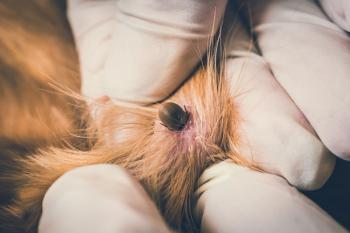
Parasite prevention for the indoor-only cat
When I offer our practice's recommendations for parasite prevention, owners often ignore our advice, saying, "My cat doesn't go outside." What can I say to educate these pet owners and protect the health of these cats?
Q When I offer our practice's recommendations for parasite prevention, cat owners often ignore our advice, saying, "My cat doesn't go outside." What can I say to educate these pet owners and protect the health of these cats?
"I think the personal stories and connections help a lot, but they have to be relevant," says Dr. Jane Brunt of the CATalyst Council. For example, Dr. Brunt says when she is speaking to people with seniors in their home, she tells about her 80-year-old mother's cat Tulip that was "indoors-only" and used to scoot right in front of her mother's bed.
GETTY IMAGES/BEN QUEENBOROUGH
"Seniors frequently get up at night—often barefoot—and when I learned Tulip had roundworms I was horrified that my mother was at risk," Dr. Brunt says.
Dr. Brunt encourages veterinary teams to share their own stories and situations from their lives, from family members and friends and even from unnamed clients to show the impact on the household.
"We also use the Centers for Disease Control data to point out that 10 percent of potting soil was found to contain roundworm eggs," Dr. Brunt says. For more great tips and facts you can use to create your own customized script to talk to pet owners about parasite prevention for indoor cats, visit
Newsletter
From exam room tips to practice management insights, get trusted veterinary news delivered straight to your inbox—subscribe to dvm360.




